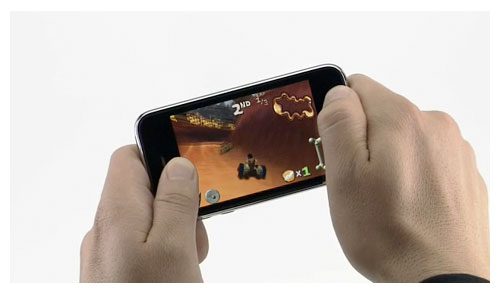Now, to get this out of the way: I am a Rovio fan, and I have been for much, much, much longer than most. I have published their very first game – Darkest Fear – and I have published a few of their pre-Angry Birds titles after that. So do not accuse me of Rovio-phobia; there is none…
So, I hope you will understand that I was pretty excited when they announced their first post-Angry Birds title, Amazing Alex. Alas, am I excited? No, not really. Now, don’t get me wrong: it is a beautifully balanced, nicely polished game. Nothing wrong with that. But is it really something über-special? As in Angry-birds-we-will-show-them-special? Erm, I think not.
You say though that they are on #1 in 30+ countries and on #2 in 30+ more (or so the Mighty Eagle tells me over Facebook and Twitter). You say that this amounts to an astonishing success, an impeccable launch. And, yes, I agree. But, aside of the impressive launch power and impeccable marketing and all, is it great? I think not. And, yes, I am disappointed. Rovio has been one of my favourite studios, long before Angry Birds. It is why I have been behind them with previous games, why I tried to push them when their talent had not been amplified by their awesome and unprecedented success of Angry Birds. But… Someone who wants to replicate Walt Disney needs to do better. Folks, you have to follow Mickey with Donald. Is Alex Donald? I think not…
I do hope – sincerely – that they will pull it of. Not because my day job at RIM requires me to stay in their good books, but because I believe that the birth of a new creative powerhouse outside of old-school Hollywood is a seriously good sign for the world, and last but not least because Michael, Peter, Andrew et al are really good people! But I do not think Alex is nearly as amazing as Donald Duck is (or Bugs Bunny for that matter) and I am hoping they will bring it with future iterations!
Come on, my Mighty Eagle and other birds: we really could do with a new Disney; it’s been way too long…
53.368166-2.432769

 We said it before: mobile is the biggest mass medium on the planet, and now game developers (and not only the sometime masochists that have been there for years) flog to it. According to a fairly large survey by GDR (which can be yours for too many dollars to count and has been reported about
We said it before: mobile is the biggest mass medium on the planet, and now game developers (and not only the sometime masochists that have been there for years) flog to it. According to a fairly large survey by GDR (which can be yours for too many dollars to count and has been reported about  It will be interesting to see if the wave will roll further into other “smarter” platforms, including Android, Windows Mobile (see the latest rumours for WinME 7, including full Xbox Live gaming implementation
It will be interesting to see if the wave will roll further into other “smarter” platforms, including Android, Windows Mobile (see the latest rumours for WinME 7, including full Xbox Live gaming implementation  In my last post, I hinted that the
In my last post, I hinted that the  Why is this more significant? Because it is (like Google/AdMob) a cross-platform play that (unlike Google/AdMob) also expands the basis of business models deployed. Playfish derives the majority of its revenues from so-called virtual currencies, and in particular also from lead-generation deals (which recently have
Why is this more significant? Because it is (like Google/AdMob) a cross-platform play that (unlike Google/AdMob) also expands the basis of business models deployed. Playfish derives the majority of its revenues from so-called virtual currencies, and in particular also from lead-generation deals (which recently have  And then – another indication on how far we have gone – the NY Times starts to whine: it notes that “despite Apple’s relentless advertising of its App Store, it seems that the availability of applications is not the primary driver of phone-buying behavior.” Doh. Now, here’s a finding. 74% of the respondents said the device “allowed” them to check their e-mail and calendar, and it allowed them to consolidate multiple devices into a single device whereas “only” 67% cited the availability of new games and applications. Only 67%, huh? Brave new world!
And then – another indication on how far we have gone – the NY Times starts to whine: it notes that “despite Apple’s relentless advertising of its App Store, it seems that the availability of applications is not the primary driver of phone-buying behavior.” Doh. Now, here’s a finding. 74% of the respondents said the device “allowed” them to check their e-mail and calendar, and it allowed them to consolidate multiple devices into a single device whereas “only” 67% cited the availability of new games and applications. Only 67%, huh? Brave new world!